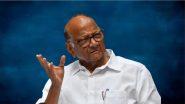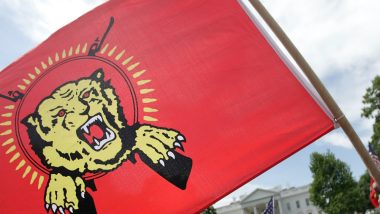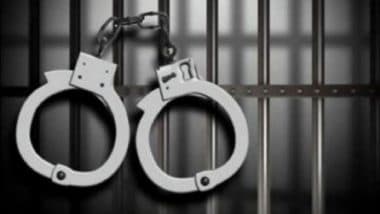London, May 22: A Sri Lankan diaspora body has challenged Britain's proscription order, imposed on the Liberation Tigers of Tamil Eelam (LTTE) since 2001, on the grounds that the outfit is no longer active and that it is inhibiting other non-violent political activities of Sri Lankan Tamils.
The Transnational Government of Tamil Eelam (TGTE), which describes itself as a "government-in-exile" body, had challenged the proscription in a petition to the UK Home Office but its plea to reverse the ban on the LTTE was turned down earlier this year. India Extends Ban on LTTE for Five More Years: Home Ministry.
It has now filed a legal challenge to the ban via Prof. Conor Gearty of Matrix Chambers and the London School of Economics (LSE), which will be heard before an independent tribunal specially constituted for this purpose under the UK's Terrorism Act 2000 – the Proscribed Organisations Appeal Commission (POAC).
"In its petition to the Home Secretary, the TGTE members argued that the ban on the LTTE is misperceived as a ban on advocacy for the establishment of a sovereign state of Tamil Eelam, and as a result it has a chilling effect in the people's participation of the TGTE's political work towards that goal,” noted a statement from Matrix Chambers, the barristers' chambers behind the challenge.
"In addition, over the past 10 years there have been no violent activities carried out by the LTTE. The act of banning the LTTE means in practice that the political activities of all Tamils are cracked down on, which is a practice encouraged by the Government of Sri Lanka, according to the Prime Minister of the TGTE – Mr Visuvanathan Rudrakumaran," the statement notes.
The legal team says that in the letter of refusal, the UK Home Office referred only to one alleged incident, noting that it had been "reported that in June 2018 the Sri Lankan police arrested individuals in the course of transporting explosive devices and LTTE paraphernalia including flags” and that no other evidence was presented to explain a continued ban on the LTTE.
The POAC has the power to direct the Home Office to lift the ban on the LTTE and a hearing date for the case is yet to be fixed, but it is expected to be some time later this year.
"The (UK) government is seeking to have much of the evidence heard in secret, a proposal that the TGTE oppose on grounds of transparency and which they desire to challenge,” the Matrix Chambers statement adds.
LTTE was proscribed in Britain in March 2001, when it was characterised as a "terrorist group fighting for a separate Tamil state in the North and East of Sri Lanka". The proscription of a group makes it a criminal offence to be a member of such an organisation or show support in any form.













 Quickly
Quickly





















